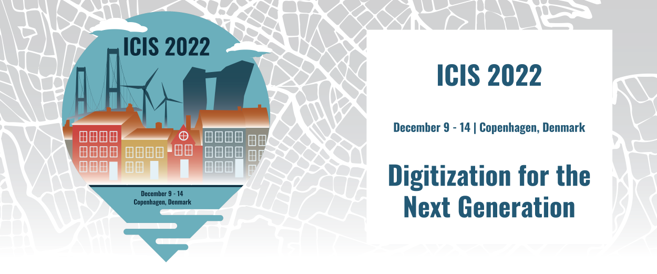Loading...
Paper Number
1754
Paper Type
Short
Description
Building on the componential theory of creativity, we studied how the crowdsourcing creativity support architectures and the task knowledge intensity levels affect the crowd’s creativity. Using an online experiment, we found that remixing can trigger the crowd to be more creative than external stimuli and using either architecture triggers the crowd to be more creative overall. Also, the crowd is more creative in solving low-knowledge-intensity tasks than in solving high-knowledge-intensity tasks. Interestingly, regardless of the knowledge intensity levels of tasks, crowdsourcing support architectures have a significant impact on the crowd’s creativity. Therefore, our paper contributes to the crowdsourcing literature on promoting crowd creativity and provides practical implications on solving societal challenges, especially large-scale problems.
Recommended Citation
Ozturk, Pinar; Han, Yue; and Ren, Jie, "What You Know and What You Don't Know: A Discussion of Knowledge Intensity and Support Architectures in Improving Crowdsourcing Creativity" (2022). ICIS 2022 Proceedings. 4.
https://aisel.aisnet.org/icis2022/social/social/4
What You Know and What You Don't Know: A Discussion of Knowledge Intensity and Support Architectures in Improving Crowdsourcing Creativity
Building on the componential theory of creativity, we studied how the crowdsourcing creativity support architectures and the task knowledge intensity levels affect the crowd’s creativity. Using an online experiment, we found that remixing can trigger the crowd to be more creative than external stimuli and using either architecture triggers the crowd to be more creative overall. Also, the crowd is more creative in solving low-knowledge-intensity tasks than in solving high-knowledge-intensity tasks. Interestingly, regardless of the knowledge intensity levels of tasks, crowdsourcing support architectures have a significant impact on the crowd’s creativity. Therefore, our paper contributes to the crowdsourcing literature on promoting crowd creativity and provides practical implications on solving societal challenges, especially large-scale problems.
When commenting on articles, please be friendly, welcoming, respectful and abide by the AIS eLibrary Discussion Thread Code of Conduct posted here.



Comments
15-SocialMedia